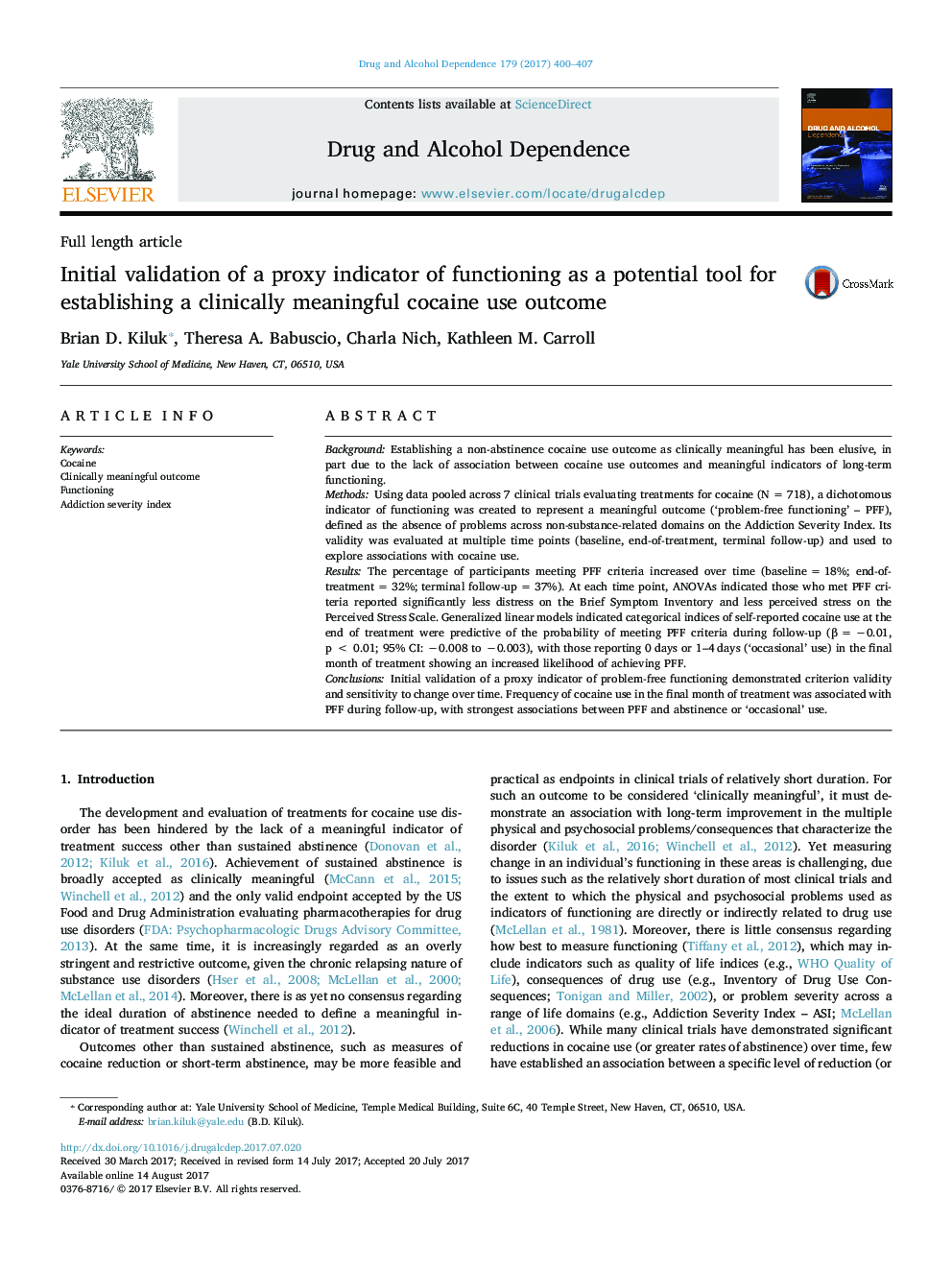| Article ID | Journal | Published Year | Pages | File Type |
|---|---|---|---|---|
| 5119969 | Drug and Alcohol Dependence | 2017 | 8 Pages |
â¢An alternative to sustained abstinence as a meaningful outcome is needed.â¢Meaningful outcomes must be associated with long-term improvement in functioning.â¢A dichotomous variable to indicate 'problem free functioning' (PFF) was created.â¢End-of-treatment cocaine use frequency was associated with long-term PFF.â¢Cocaine abstinence or 'mild' use (1-4 days) increased likelihood of long-term PFF.
BackgroundEstablishing a non-abstinence cocaine use outcome as clinically meaningful has been elusive, in part due to the lack of association between cocaine use outcomes and meaningful indicators of long-term functioning.MethodsUsing data pooled across 7 clinical trials evaluating treatments for cocaine (N = 718), a dichotomous indicator of functioning was created to represent a meaningful outcome ('problem-free functioning' - PFF), defined as the absence of problems across non-substance-related domains on the Addiction Severity Index. Its validity was evaluated at multiple time points (baseline, end-of-treatment, terminal follow-up) and used to explore associations with cocaine use.ResultsThe percentage of participants meeting PFF criteria increased over time (baseline = 18%; end-of-treatment = 32%; terminal follow-up = 37%). At each time point, ANOVAs indicated those who met PFF criteria reported significantly less distress on the Brief Symptom Inventory and less perceived stress on the Perceived Stress Scale. Generalized linear models indicated categorical indices of self-reported cocaine use at the end of treatment were predictive of the probability of meeting PFF criteria during follow-up (β = â0.01, p < 0.01; 95% CI: â0.008 to â0.003), with those reporting 0 days or 1-4 days ('occasional' use) in the final month of treatment showing an increased likelihood of achieving PFF.ConclusionsInitial validation of a proxy indicator of problem-free functioning demonstrated criterion validity and sensitivity to change over time. Frequency of cocaine use in the final month of treatment was associated with PFF during follow-up, with strongest associations between PFF and abstinence or 'occasional' use.
